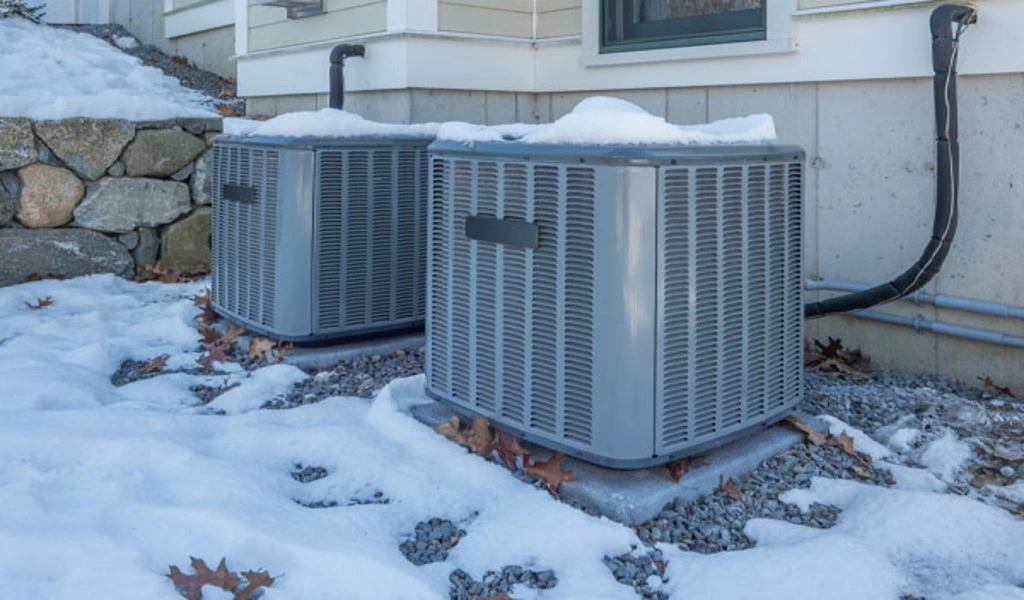Opinion
Should You Cover Your Air Conditioner in the Winter?

When winter comes around, many homeowners worry if they need to cover their air conditioner. After all, you would want to safeguard what amounts to a significant financial investment. However, there is more to it than just a yes or no answer.
To help you decide what’s best for your home, we’ll go over the advantages and disadvantages of covering your air conditioner during the winter months. A lot of people get their houses ready for winter as the temperature starts to drop and have it maintained. The dilemma of whether or not to cover the air conditioner is a persistent one.
It’s reasonable, on the one hand, to guard your financial assets. However, there are many who say it’s unnecessary. Let’s weigh the benefits and drawbacks so you can make a wise choice.
Benefits of Winter AC Coverage:
Prevention of Snow and Ice Damage:
Safeguarding your air conditioner over the winter is a must for everyone who lives in a chilly environment. The unit can be damaged by the heavy snowfall and ice, and it can break down more frequently because of the cold weather.
You can maintain your air conditioner in good working order over the winter by covering it. If you really want to be ready, you may even purchase an air conditioner cover that is made to resist the harsh conditions of winter. So, the next time it starts to snow, take the time to cover your air conditioner and have it maintained to avoid having to make expensive repairs.
Keeps Rust Away:
Preventing rust build-up is crucial for keeping your air conditioner in good working order. Exposed metal surfaces can rust when they come into touch with humidity in the air, and this can cause significant damage to your appliance over time. The good news is that rust may be easily avoided by covering your air conditioner while it’s not in use. This will prevent rust from forming on your air conditioner by preventing moisture from reaching the metal.
How To Know When To Cover Your A/C:
If there are many trees in the area, you may want to cover your unit in the autumn to keep out falling leaves, berries, twigs, and other debris. If any debris has made its way into your unit, it will be discovered and removed during the routine maintenance service you have each year.
This is why it’s important to have your air conditioner serviced each year before you use it for the first time. It is not required to cover your air conditioner during the winter, but you should be aware if snowflakes are collecting above it and remove them to prevent damage.
If you can’t get rid of them, a solid cover or board of wood can catch any snowflakes that fall on your AC and keep them from causing damage. Mesh covers can be used year-round, including in the winter, but they won’t prevent damage from any falling ice.
When Winter Coverage of Your Air Conditioner Is Not Necessary;
Many people protect their air conditioners throughout the colder months. It is unnecessary to cover many of the air conditioners that exist. Specifically, there is little evidence that shielding air conditioners helps homeowners save money.
The following are situations in which covering your air conditioner is not a good idea: when the temperature outside is really cold. Temperatures in the winter can drop to dangerously low levels (below -15°F). When the temperature outside drops below zero, covering the air conditioner won’t help.
It’s worth noting that air conditioners are constructed to handle extremely cold winter temperatures on their own. In this case, trying to cover it won’t work. Covering an air conditioner has little effect on preventing condensation or mold growth. Mold can grow and damage your AC unit if the exterior unit is exposed to high humidity. There is not much we can do to keep the dampness out.
One of the worst things we can do, though, is to shield the air conditioner during the colder months. That will just encourage condensation, leading to higher relative humidity levels inside the unit and a greater likelihood for mold growth. Covering an air conditioning unit is ineffective at preventing pests. We might hope that if we cover the air conditioner, insects won’t be able to sneak inside.
The exact opposite is correct. These insects are on the lookout for warm, snug quarters as winter approaches. To relax, an outdoor air conditioner unit is a great option. These rats may find a covered outdoor AC to be a small slice of heaven in the winter. Mice and rats are more likely to take refuge in an outdoor AC unit if it is covered.
SEE ALSO: Unlocking The Secrets: How The Personality Database Reveals Your Hidden Traits






























